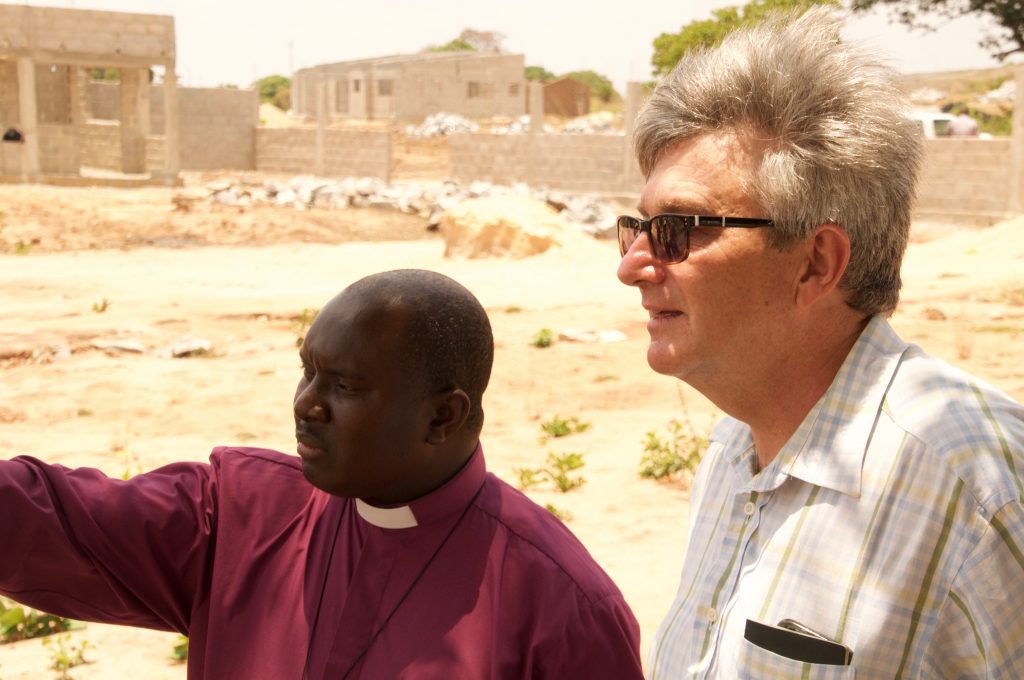
By Bob Mitchell
16 February 2022
Retiring after nearly 10 years as chief executive of Anglican Overseas Aid, Reverend Dr Bob Mitchell was invited to reflect on Australia’s aid policy over his term of office, with an eye to the coming election.
In my view, a robust commitment by government to a foreign aid program requires three elements: generosity, consistency, and a dedicated focus. As I look back over the last 10 years, these pillars have been decidedly shaky.
In terms of generosity, Australia’s commitment to foreign aid has slumped to an all-time low. It currently sits around 20 cents for every $100 of national income. That’s underwhelming and embarrassing when compared to most of our Organisation for Economic Co-operation and Development peers and Scandanavian countries.
Read more: We need to talk about the kind of society Australia wants to be
This matters in two ways. Firstly, a great deal of good can be achieved with foreign aid. Repeated evaluations show that public money directed through Australia’s non-Government organisation program is especially effective in ensuring impact.
But, the saddest thing about successive aid cut-backs is the message sent to the broader Australian community. Governments are elected to provide leadership and to set a national vision. Rather than standing up for dignity and compassion for neighbours in need, these cuts have painted a dismal and inward-looking picture. The language of fiscal responsibility, budget repair, and charity starting at home has been used to cloak narrow self-interest, insularity, and at times, xenophobia. Australia deserves an aid program that inspires national pride and that appeals collectively to our better instincts.
Consistency means having a principled approach. Helping other people, sometimes the poorest of the poor, is a good in and of itself. We should not forget this. The humanitarian ideal can be compromised when our aid investments are viewed through other lenses. These lenses go by various names, including national security, soft diplomacy, trade opportunity, and global ambition. While such considerations are not unimportant, our aid program should not be held captive to other agendas. Directing greater support through NGOs is one way of helping to prevent this.
Finally, developing and administering an official aid program is a serious business requiring dedicated departmental support, bureaucratic stability, and professional opportunity. Looking back, I deeply regret the dismantling of federally-run AusAID and its absorption within the Department of Foreign Affairs and Trade. This has had the effect of further eroding the emphasis on humanitarianism and the development of an independent national aid program.
Read more: Ask what your candidates will do for the vulnerable: Anglicare Victoria
One very positive development over the last 10 years is a much deeper understanding across the aid and development sector about what faith-based NGOs can contribute.
In the developing world, faith is front and centre. Unlike in Australia, it remains most people’s primary source of meaning. Engaging with faith-based actors, like local church networks, can produce great results. These partners have reach, local knowledge, grassroots connections, moral authority and mobilising capacity. This may seem obvious, but for many decades development was seen as a project of modernity to be kept at a safe distance from the church. I like to think AOA has had a small but important role in providing leadership in this space.
With a federal election around the corner, I would encourage all voters to do their own research about candidates. Undoubtedly there are people of goodwill and global concern on all sides of politics. I recommend looking out for those aspirants to public office with policies and personal principles that stand up for human dignity.
Caring for others is central to our Christian discipleship. It is also in everybody’s collective interests. COVID-19 is a great example of how a truly global response is necessary to achieve the common good.
In May, I will be especially wary of contenders who cast aside concern for our neighbours with the kind of shrill jingoism that we hear too often. In my experience, Australians are generous people with a real concern for the hardships experienced by people everywhere. In our Prayer Book we ask Almighty God to “Give the people of this land a spirit of unselfishness, compassion and fairness in public and private life”. We also ask God to help us to share “with justice the resources of the world”. To these prayers we should all say a very loud “Amen”!








One Response